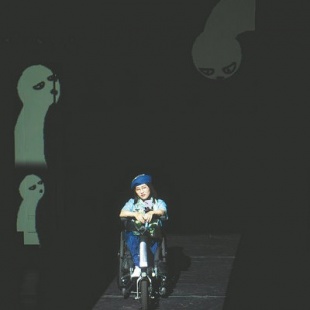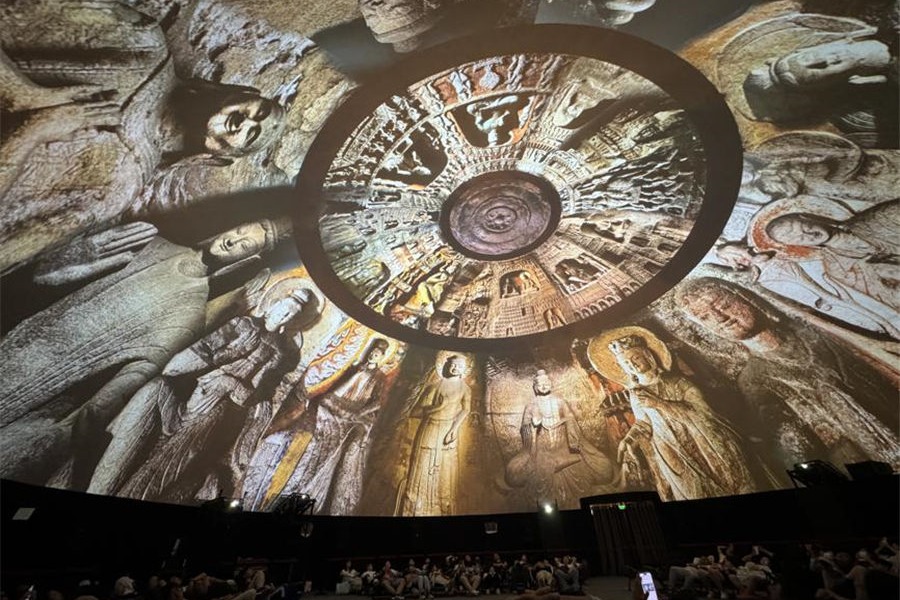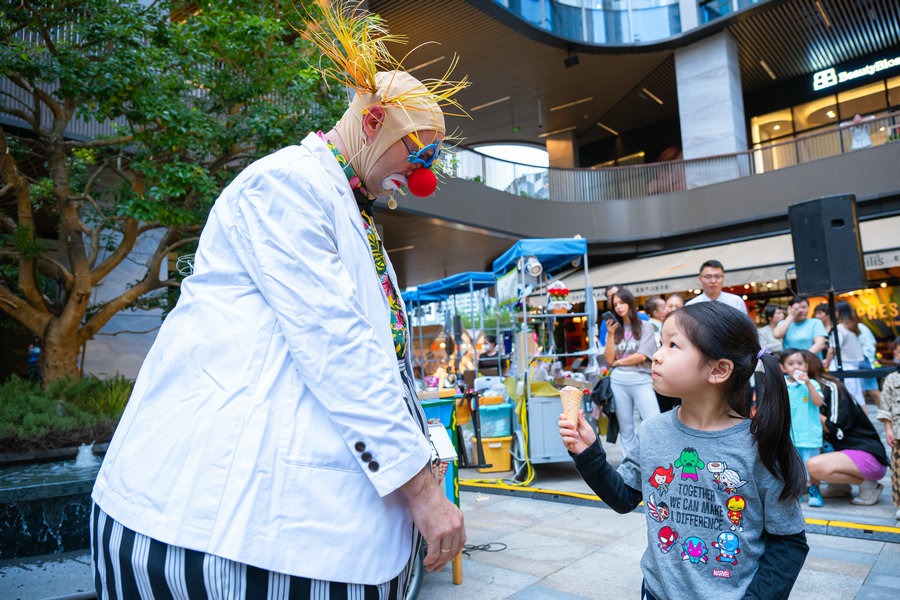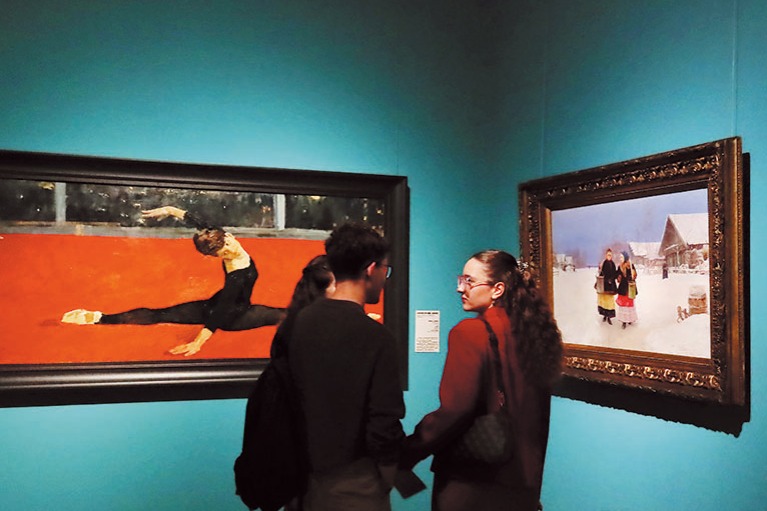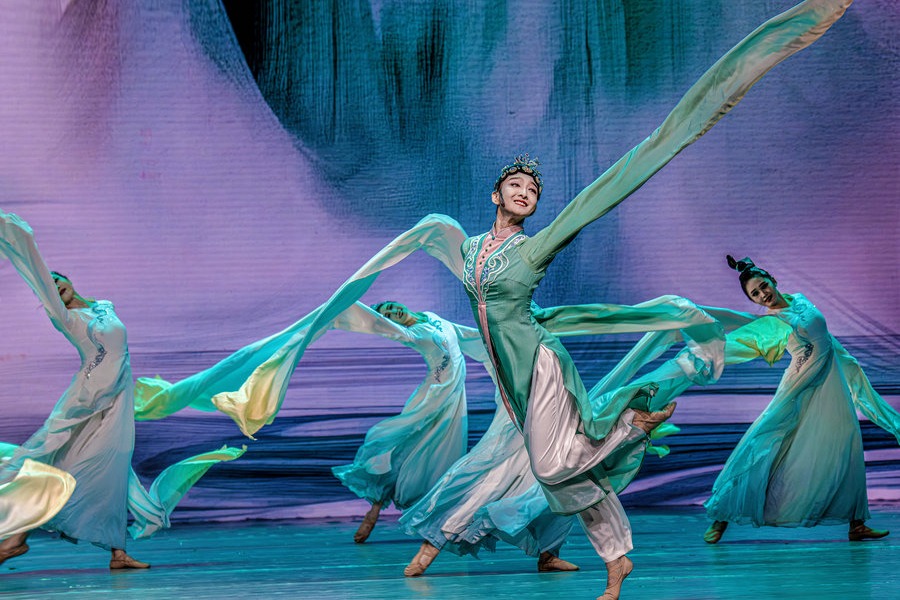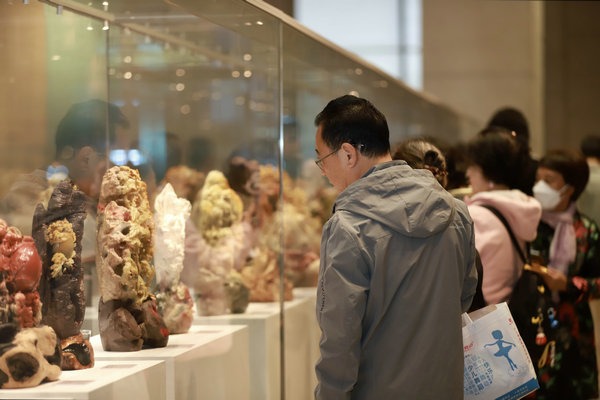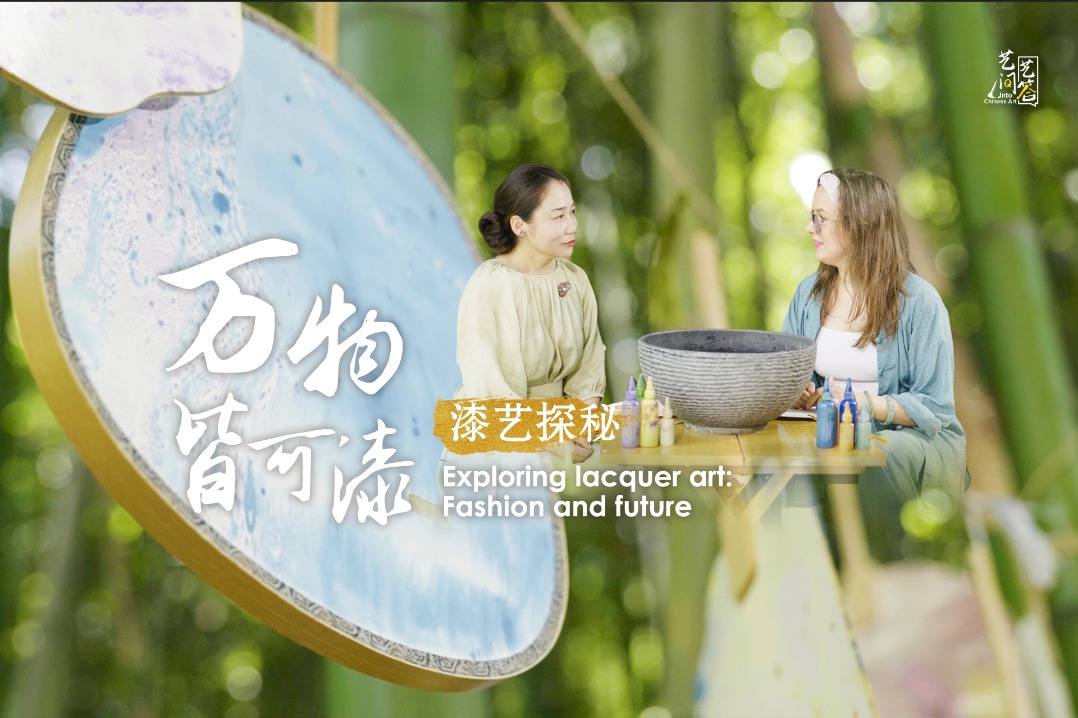A creative spirit that conquers challenges

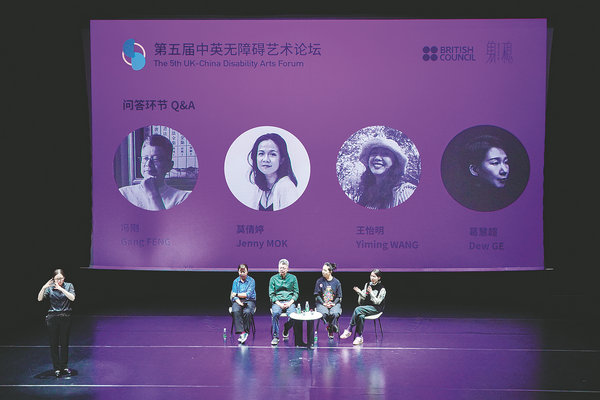
Artist in a wheelchair's one-woman show tells her story with passion and compassion.
Last year, video blogger and wheelchair user Zhao Hongcheng spoke at the UK-China Disability Arts Forum, sharing her everyday life experience and reviewing barrier-free facilities at public places, including the metro, sightseeing spots and theaters.
Just a year later, Zhao attended the fifth edition of the forum, but this time she has taken on the role of a theater performer, with her own one-woman show Be Seen, which won Best Innovative Play at the Seventh Chinese Theatre Awards.
Not only is the play a solo performance, it is also based on her true story. In the production, she talks of her experience of being "othered", her relationship with her mother, as well as the complexity of her personality, with both optimism and anger, tenacity and insecurity.
"For so many years, I think I'm ill. In a world where most people see me as an unwell person, it's really hard for me to believe that I am not," one of the monologues in the play goes.
"Now I understand, being disabled is not an illness. It's a fact that I can't change. But what I can change is to no longer see myself as an ill person. And even better, I can tell my story, so those who are similar to, or different from me, can hear my voice."
While Zhao has been reviewing accessibility in theater venues and going to performances, encouraged by her husband, before this play she never thought that she could become a performer on the stage.
In 2022, she attended the Shanghai edition of the inclusive theater production Gala by French choreographer Jerome Bel, and saw for the first time a wheelchair user dancing onstage alongside other performers without inhibition.
"It left a deep impression on me. I thought about how wonderful it would be, if a domestic production could feature a wheelchair user onstage," Zhao says.
Coincidentally, producer of Be Seen, Shen Lujun, came in contact with her shortly afterward. At the time, Shen was using a crutch due to an injury.
Zhao says this is one of the contributing factors of her accepting the role, because from her own experience, individuals temporarily using crutches or wheelchairs due to injuries often recognize the importance of barrier-free facilities.
Accepting to participate in the production marked the beginning of a journey with immense challenges, including the inadequacy of barrier-free facilities during rehearsals, Zhao's need to lie down every four to six hours because of her spinal surgery, the difficulties of acting, as well as her loneliness as a theater performer with reduced mobility.
The production crew helped her overcome these obstacles, by providing her with an environment of equality, mutual respect and support.
"Everyone needs to be seen, with or without disability. We need to be seen by strangers, and also by our own family," says Shen, who also attended the forum as a guest speaker.
She says that when first working on this production, she had a clear vision of aiming for a production that will be staged in mainstream theaters, with high artistic standards and long-term commercial sustainability.
The play premiered at the Shanghai Grand Theatre this May with eight performances, and then graced the Beijing Tianqiao Performing Arts Center with three performances.
"To break down bias, we need to leverage the platforms of mainstream theaters so as to reach a broader audience, who will see these performances and learn more about people with disabilities," Shen adds.


